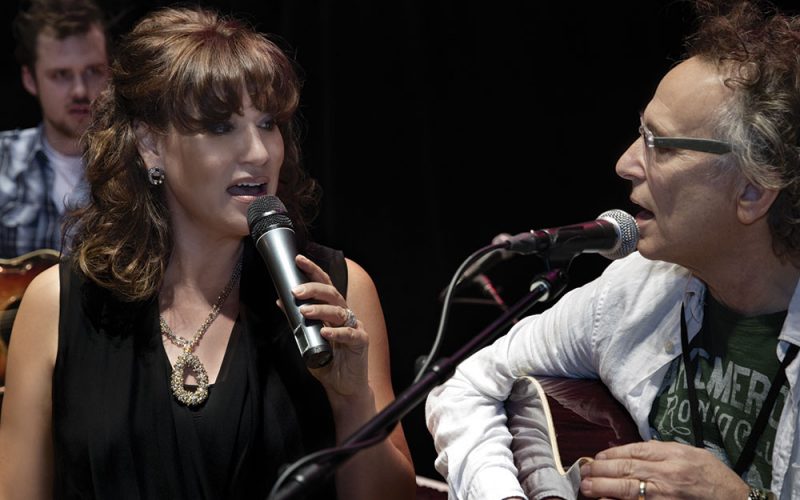By Adam Winfield
When the COVID-19 lockdowns hit in March 2020, Ontario seniors living in retirement homes and long-term care homes were subject to some of the tightest restrictions.
Dennis Bayley, 86, and his wife L. Patricia Bayley, 85, lived through the very strictest lockdowns and safety measures because Village of Taunton Mills Retirement Home, where they have resided for five years, also has a long-term care facility.
“We’ve only just been able to go out for a meal for the first time in two years,” Dennis said, “and there are still protocols for what we can and can’t do. It has been hard for some of the residents who haven’t been able to see their latest grandchildren and the like, but most of them agree it’s the right thing to do to keep us healthy and I haven’t heard of any complaints to management.”
Dennis and Patricia, however, did not see only being allowed out for essential reasons as leaving them with nothing to do, but instead as an opportunity to take on new activities that were fulfilling and rewarding. “We’re in our waning years and time is well and truly against us, so there is none to lose. We should be using our time in a positive way, keeping our minds and bodies active and staying interested in a variety of things.”
To illustrate how precious he considers his time, Dennis recalls a situation when he needed to renew his driving license and was stuck in a long line at the Ontario Service Centre. “I asked if I could have the attention of everyone in the line, then explained that the time I’d spend waiting would be a significant proportion of the rest of my life. Even though I was joking, they sent me to the front of the line!”
Patricia, who has been married to Dennis since 1960, strives to use her own time just as wisely. So, when the lockdowns struck, they both saw an opportunity to embark on a series of projects they might otherwise not have gotten around to with all the commitments of pre-pandemic life.
The first joint challenge the couple took on was getting as fit and well as possible, in case either of them did need to fight off COVID-19. “In March 2020 we set ourselves a goal of one million extra steps by the end of the year using a treadmill, a cross-trainer, or by walking,” Dennis said, “and we were done by November.” He trimmed five inches off his waistline and said it also helped that the couple couldn’t eat out.
For his main solo project, Dennis decided he would learn to draw left-handed. Far from being a hare-brained scheme, this was an experiment that had roots in his childhood. “I’m naturally left-handed, but in school they’d hit you over the hand with a ruler every time you used your left hand, so I had to become right-handed. After 80 years of using my right hand, I picked up a scrap of paper to see if I could go back to drawing left-handed, and now I draw better with my left hand than my right.”
Dennis’s drawing experiment became the subject of a Penn State University blog by Professor Emerita of Psychology Dr. Clare Porac, a researcher with an international reputation in the field of human lateral preferences including handedness. She noted the clear progress he’d made in improving his left-handed sketches, acknowledging it may well have been easier because he’s naturally a left-hander.
When he wasn’t sketching or exercising, Dennis found time to support Patricia in what was perhaps the couple’s most ambitious project during the lockdowns. Patricia is an accomplished poet whose love for writing was born as soon as she was able to print. When COVID hit, her poetry began to touch on the emotions and thoughts people were experiencing in those early days.

Videos of Patricia reading her poetry had been viewed thousands of times on Facebook, and in April 2020 she was asked to read out one of her poems on CTV News, reaching 1.7 million households, according to the Nielsen ratings. “People we knew from all over were calling us to say they’d seen Patricia on the TV,” Dennis said, “and they were asking if she had more poems we could send them. So, compiling Patricia’s poetry into a book became our next project.”
Patricia got to work on tidying up and curating the poems, while Dennis looked into getting the book published. “It turned out it would cost us about $10,000 to publish, so I learned how to do everything but the printing myself,” he said. “I designed the book cover and interior layout, determined the trim size and material specifications, and edited public domain photos to illustrate each poem.” He said the retirement home’s staff helped with typing and a close friend provided technical assistance with formatting.
Six months later, the book – called Life’s Journey – was ready to be sent off for printing, and the first print shipment sold out in four days. The second and third prints were quickly snapped up too, and a fourth is on the way. “We got advice online for pricing and marketing the book, which we’re self-distributing, but most of the sales have been through word of mouth and we can’t keep it in stock,” Dennis said.
Life’s Journey has been accepted for inclusion in Whitby Library, where it will be appearing in the Indie Publishers collection later in 2022, and Patricia’s COVID-themed poems have been archived there. She is writing a monthly poem for the in-house Newsletter of Taunton Mills and convening a monthly poetry appreciation group for fellow residents.
Despite their successes, Dennis is sure the couple will not rest on their laurels. “Our time is simply too precious a commodity to waste.”





